Space and Interior Design degree programmes at The Design Village (TDV) focus on imagination and realisation of the built environment by imparting a creative mindset and real-world exposure of buildings, exhibitions, installations, and other forms of space. The programmes offer students an industry-centric blend of imagination and realization skills, critical to excel in the competitive space and interior design industry. The education at TDV aims to prepare design professionals for the future, and the courses under these programmes are run with an inherent focus on Interior Architecture and the larger Built Environment.
B.Des (Hons.)
More about 4-year
undergraduate programme
M.Des
More about 2-year
postgraduate programme

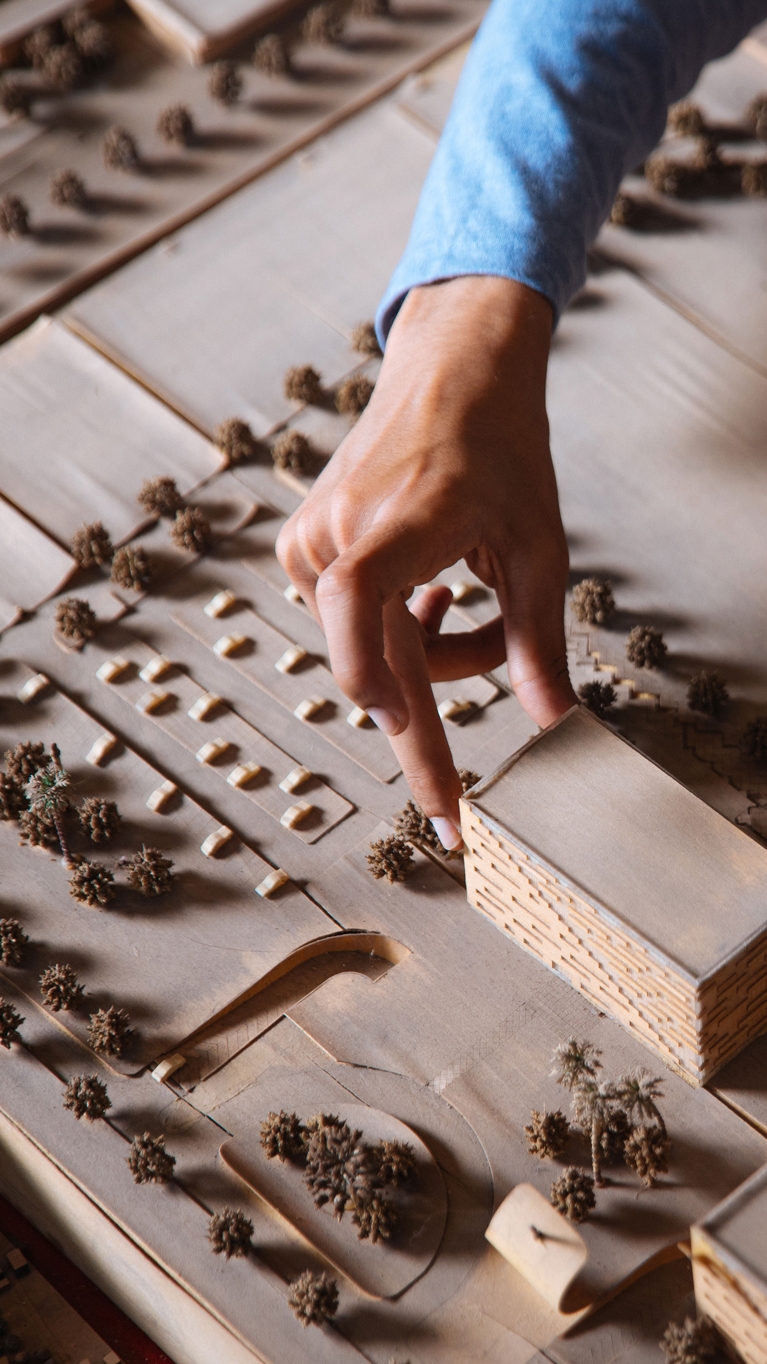
(HIGHLIGHTS)
Why choose TDV FOR
Space & Interior Design?
Interior Architecture and Built Environment
Space and Interior education at TDV is highly industry-centric, preparing graduates to thrive in a competitive industry. This intent is deeply rooted in the curriculum with a focus on two domains: Interior Architecture, an approach with equal focus on building structures and interior experiences, and Built Environment, a larger subject that includes diverse man-made spaces where we live, recreate and work.
Industry-centric Ecosystem
With a Forbes’ award-winning campus located in the heart of Noida’s creative industry, TDV’s Space and Interior Design programmes offer students the perfect ecosystem to experience world-class education, with access to the industry’s most prominent professionals including Borina Andrieu, Rahul Bhushan, Winkler Hervé etc., and the opportunity to work on 10+ real world projects
Placements
TDV’s Space and Interior Design programme has strong ties with established architecture practices, interior design studios, and real estate companies, enabling students to get their foot inside some of the most inaccessible industry doors across the world, including Homelane, Livspace and Square Yards.
(PLACEMENTS)
Work for
Leading Brands
Industry Relations team at TDV works closely with students to help them secure internships and placements from a diverse and prestigious array of sources, while ensuring that their personal career goals are met.

Nikhil Karamchandani
Homelane, Jaipur


Abhik Borah
JD Centre for Arts, Delhi


Sowmya Kovvuri
Livspace, Hyderabad


Shivani Saini
National Council of Science Museums, Delhi


Nithin Sam
Plus 971 Architects, UAE


Anshika Sood
Story of Spaces, Gurugram
(AWARDS)
Get Globally
Recognized
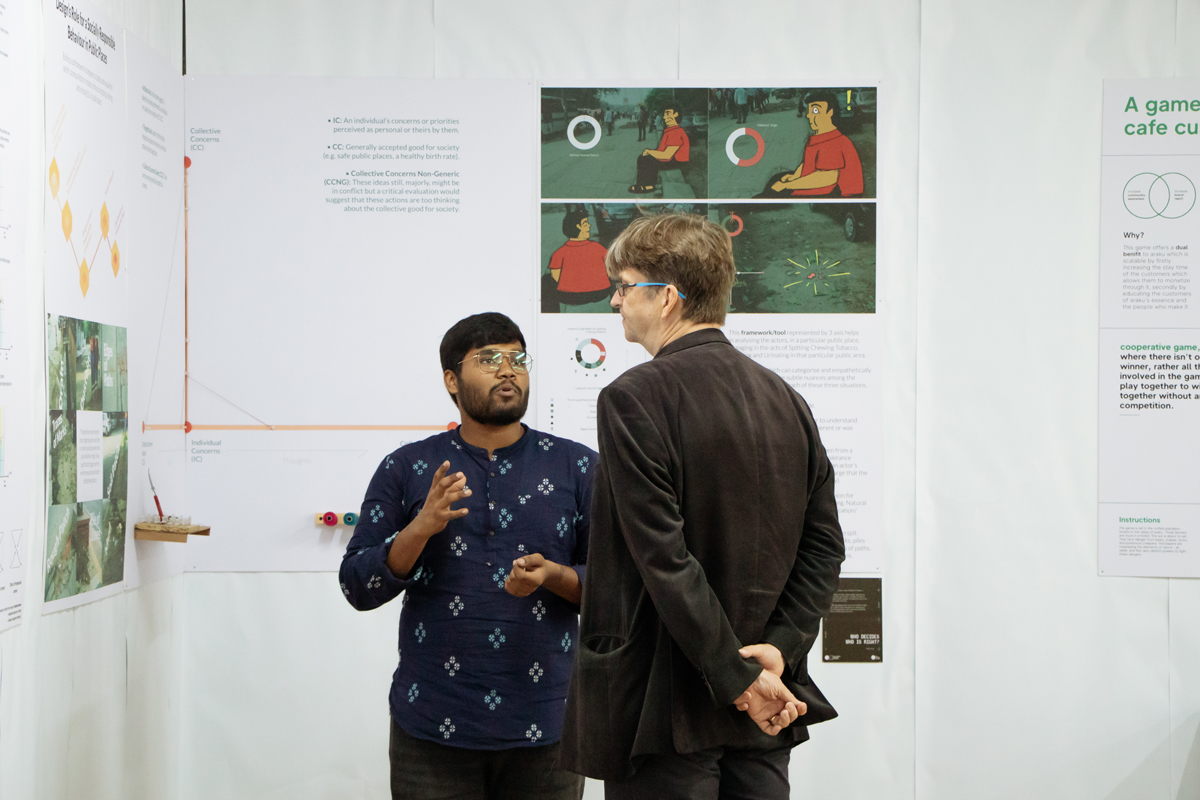

Sharl Pear, Delhi, 2023
Design for Socially Responsible Behaviour in Public Places, Winner of Good Intervention 2024 Competition, Parsons School of Design (New York, USA)

(Real-world Projects)
Industry projects are a part of TDV classroom, giving students an in-depth, hands-on experience of how organizations approach actual design problems, manage clients, and deliver final products in the market.


Spatial Experience for Artize Atelier, 2023, Jaquar
In-store installation to help ascertain a distinct brand position for Artize, a luxury bath brand, Jaquar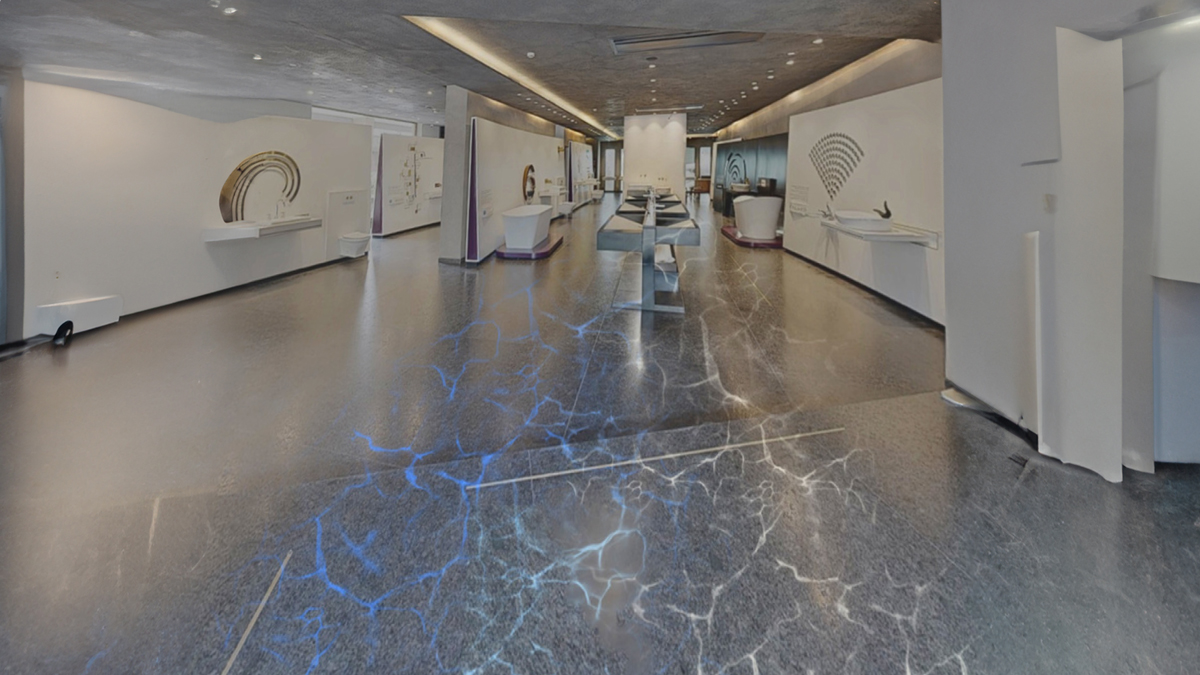

Chowk and Charpai, 2023, London Design Biennale
Create the India Pavilion at the bi-annual event held in London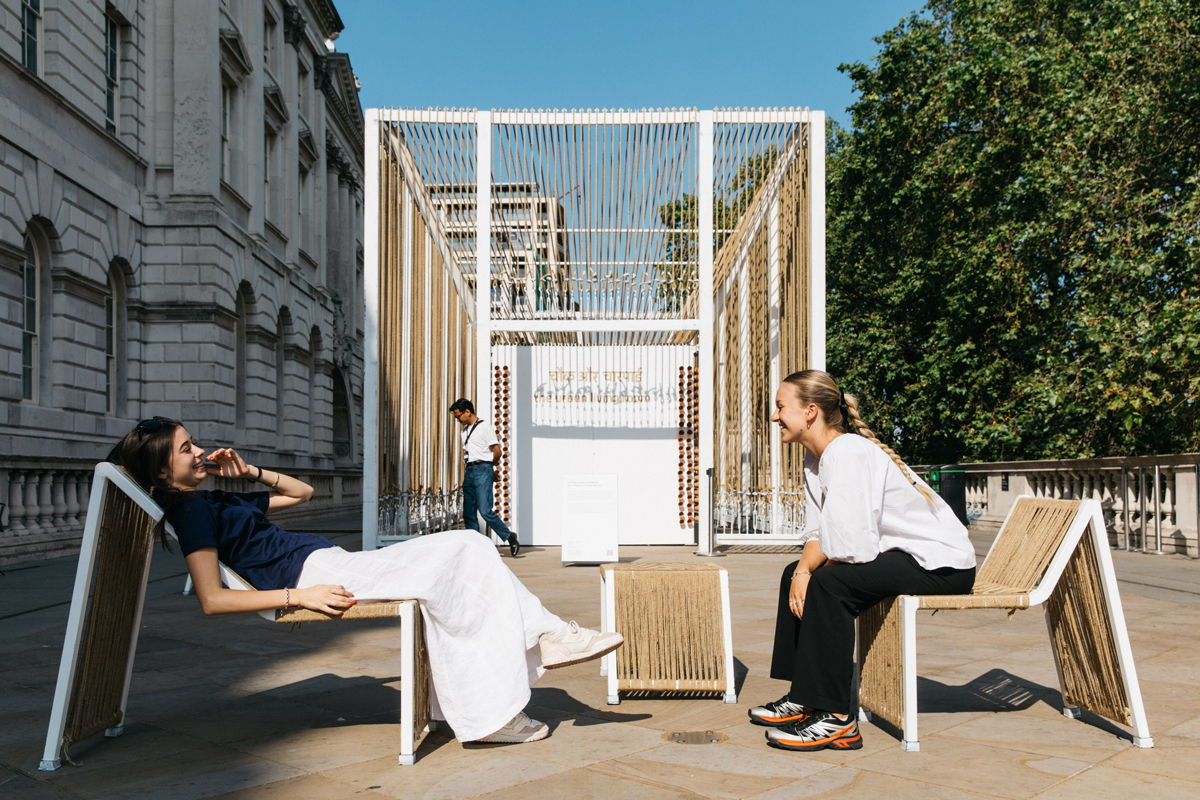

Patient-centric Experience, 2020, Medanta
Designing intuitive, clear, and visually engaging wayfinding graphics to enhance navigation across Medanta Hospitals for all

Wayfinding for Arthshila, 2023, Takshila Educational Society
Wayfinding system and signage artefacts for the Arthshila Arts Space in Okhla
(STUDENT WORK)
Innovate in
THE CLASSROOM
From everyday interiors to mega-exhibitions, Space and Interior Design students at The Design Village explore and push the boundaries of design, turning abstract concepts into tangible realities.
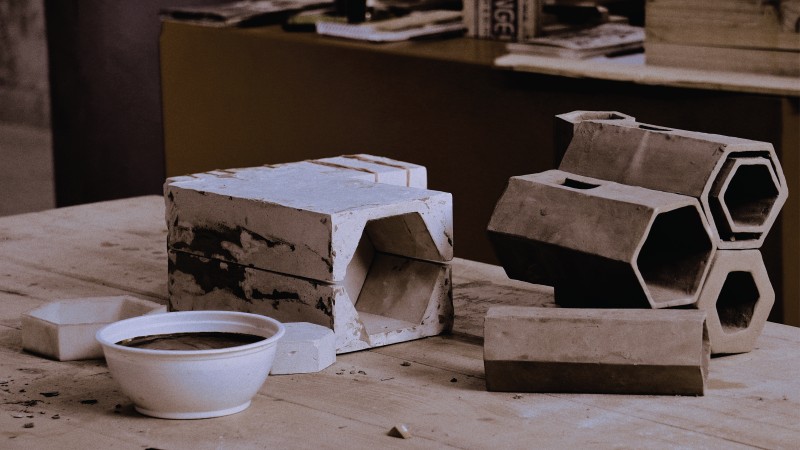
Passive Cooling Systems
This site-specific passive cooling strategy addresses the need to re-imagine the escalating homogeneity of built spaces in tandem with the local environment.
Tanish Agrawal
2022
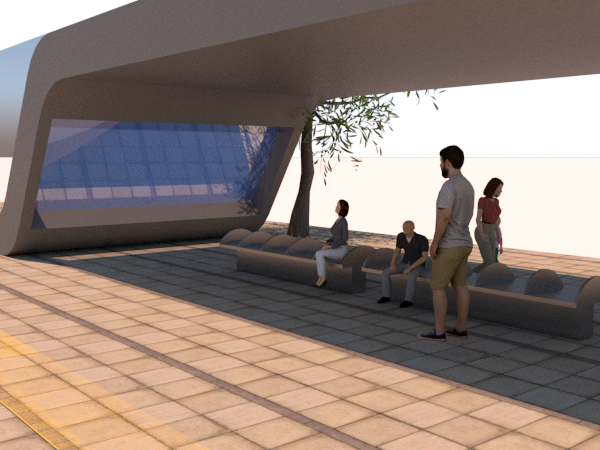
Safe and Sound
Redesigning public transport infrastructure to make daily commute safer and easier for women.
Sanjana Cherian
2025
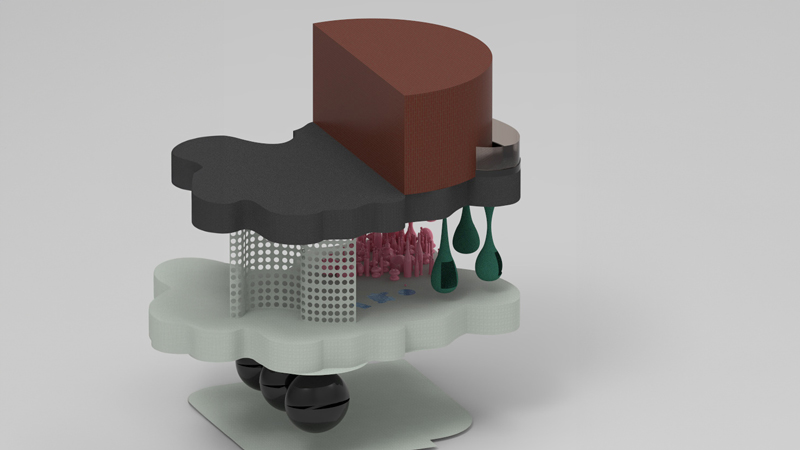
Lost in Substitutes
Multisensory space aimed at reversing the human experience of the world in the digital era
Namoshree Jain
2020

Meghalaya Twin City
Research driven solutions to build a new city in Meghalaya near Guwahati city, Assam border.
Aayush Dahiya, Ankit Kumar, Anugrah Ramdas, Jugaadh Singh, Lewna Deb, Saansh Arora
2024
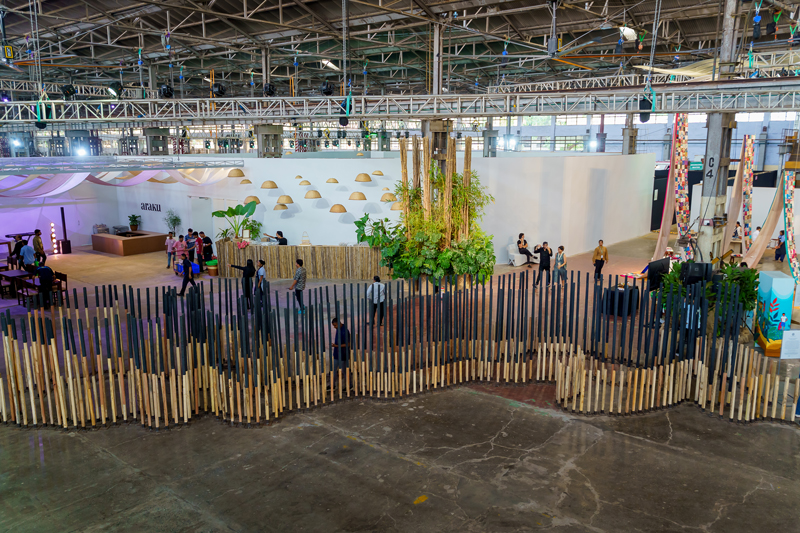
Fluvial Conscience
Immersive installation highlighting Mithi River's pollution, urging reflection on sustainability and collective environmental responsibility.
Arpita Saraswat, Rochak Ritham, Ashwin Rajesh, Mouli Gupta, Vedangi Rane, Priyanshi Gupta
2024
(EXPOSURE)
Kickstart Making at world's
finest Professional Workshop
MAKE Abu Dhabi is a community-based space for creative individuals that is part workshop, lab, studio and garage with a wide range of professional-grade machinery, tools and classes covering the technical, the mechanical and the tactile elements of engineering, making and design. TDV students, in their first year of the programme, access an all-inclusive immersion working at Make Abu Dhabi that widens their horizon, preparing them to imagine and innovate the future.
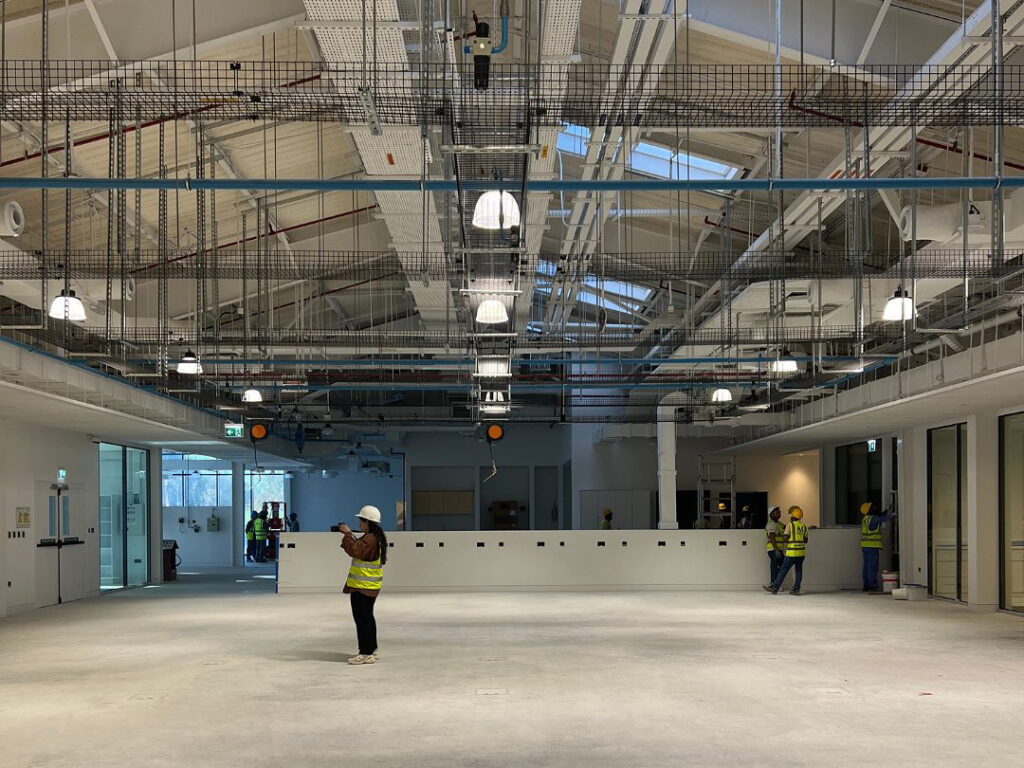
(FACILITIES)
Access a Living Lab

Archohm Living Lab
(MASTERS)
Learn from
Industry Masters


Sourabh Gupta
Professor of Practice
Principal Architect, Archohm


Kai Uwe Bergmann
Partner, NYC
BIG Architects
Work of BIG, 2023
(FACULTY)
PROGRAMME FACULTY

Lena Ragade Gupta
Programme Head

Abir Sheikh
Programme Coordinator
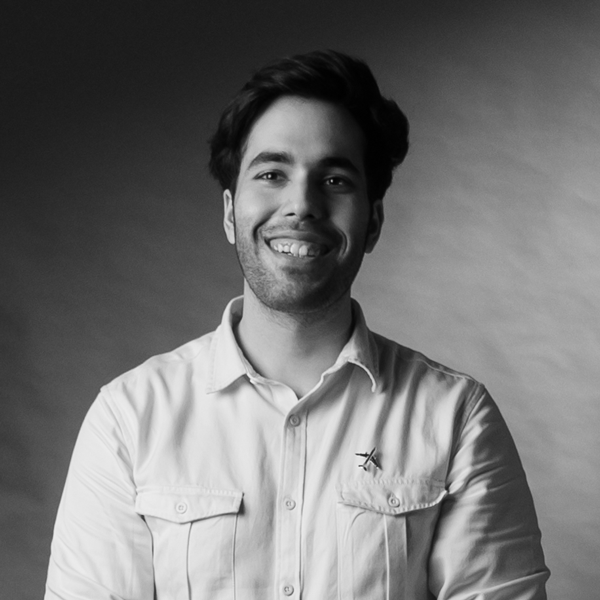
Kshitij Bahl
Faculty

Rahat Varma
Faculty

Ritwick Nandi
Faculty

Heisnam Shantanu
Faculty
(FAQs)
FREQUENTLY
ASKED
QUESTIONS
Space & Interior Design at TDV
1) What is Space & Interior Design?
1) Space & Interior Design is the art and science of creating functional and aesthetically pleasing environments. It combines elements of architecture, product design, environmental psychology, and visual arts to shape spaces that enhance human experiences and activities.
2) Why study Space & Interior Design?
2) Space & Interior Design programme offers a rewarding and fulfilling career path for individuals who are passionate about creativity, problem-solving, and creating beautiful and functional spaces. Here are some compelling reasons to consider studying this field:
1) Creative Expression: Interior design provides an outlet for your creativity, allowing you to express your unique style and vision through design.
2) Problem-Solving: You’ll develop strong problem-solving skills as you tackle challenges such as space constraints, functional requirements, and aesthetic preferences.
3) Impactful Work: Interior designers have the power to positively impact people’s lives by creating spaces that are inspiring, comfortable, and conducive to their well-being.
4) Diverse Career Opportunities: The field of interior design offers a wide range of career paths, from residential and commercial design to hospitality, retail, and event planning.
5) In-Demand Skills: Interior designers are in high demand due to the growing emphasis on creating aesthetically pleasing and functional spaces.
6) Interdisciplinary Field: Space & Interior Design combines elements of art, architecture, psychology, and business, providing a well-rounded education.
7) Continuous Learning: The design industry is constantly evolving, offering opportunities for lifelong learning and professional growth.
By studying Space & Interior Design, you’ll gain the skills and knowledge to transform spaces into meaningful environments that enhance people’s lives. Whether you’re interested in designing homes, offices, hotels, or retail spaces, this field offers a rewarding and fulfilling career path.
3) What does Space & Interior Design programme cover?
3) The Space & Interior Design programme at TDV covers a wide range of topics, including:
1) Design fundamentals: Principles of design, color theory, materials, and finishes
2) Space planning: Layout, circulation, and ergonomics
3) Interior design software: Proficiency in industry-standard software like AutoCAD, SketchUp, and Revit
4) Sustainable design: Eco-friendly materials, energy efficiency, and green building practices
5) Project management: Client communication, budgeting, and scheduling
6) Professional ethics: Legal and ethical considerations in the design industry
4) Do I need to be good in art or drawing to study Space & Interior Design?
4) While artistic skills can be helpful, they are not a prerequisite for studying Space & Interior Design. The programme focuses on developing your design thinking, problem-solving abilities, and technical skills. With practice and guidance, you can learn to express your ideas through design.
1) Why choose The Design Village for Space & Interior Design?
1) The Space & Interior Design programme at The Design Village (TDV) offers a comprehensive curriculum that equips students with the skills and knowledge needed to succeed in the field. The programme covers a wide range of topics, including:
1) Design Fundamentals
– Principles of Design: Understanding the basic elements of design, such as line, shape, color, texture, and space.
– Color Theory: Learning how to effectively use color to create different moods and atmospheres.
– Materials and Finishes: Exploring a variety of materials and finishes for walls, floors, ceilings, and furnishings.
2) Space Planning
– Layout and Circulation: Designing efficient and functional layouts for various types of spaces.
– Ergonomics: Ensuring that spaces are designed to promote comfort, health, and productivity.
– Accessibility: Designing spaces to accommodate people with disabilities.
3) Design Software
– Proficiency in Design Tools: Mastering industry-standard software such as AutoCAD, SketchUp, and Revit for creating design drawings, plans, and presentations.
– Digital Rendering: Learning to create realistic visualizations of design concepts.
4) Sustainable Design
– Eco-Friendly Materials: Exploring sustainable materials and practices in interior design.
– Energy Efficiency: Designing spaces that minimize energy consumption.
– Green Building Standards: Understanding and applying green building certification standards.
5) Project Management
– Client Communication: Effectively communicating with clients to understand their needs and preferences.
– Budgeting and Scheduling: Developing and managing project budgets and timelines.
– Contract Negotiation: Understanding and negotiating design contracts.
6) Professional Ethics
– Legal and Ethical Considerations: Adhering to professional standards and ethical guidelines.
– Intellectual Property: Protecting and respecting intellectual property rights.
By completing the Space & Interior Design programme at TDV, students will develop a strong foundation in design principles, technical skills, and professional practices, preparing them for successful careers in the field.
2) What is the teaching methodology in TDV’s Space & Interior design course?
2) The journey is based on the learning manifesto of each student and the itinerary chalked out to achieve it.
Hence the journey undertaken by every villager at TDV is unique and bespoke, and it does not have to cease at the end of four years. Although the journey is individual, the villager is not alone. There is a support system of relevant people, to assist the villagers at every junction.
Each villager charters their own personal learning path. This path is custom-made for her with a great mix and match of experiences, projects, and tools through three streams of interrelated activities:
1) ‘Villaging’ activities for personal development, with the goal to build the TDV community and oneself
2) Design projects to be retrieved from the ‘task box’, where everything is based on reality.
3) ‘Baskets’ contain clusters of courses characterized by a common theme, discipline, or learning objective.
1) What qualifications do I need to become a Space & Interior Designer?
1) It is recommended to pursue a Bachelors or Masters degree in Space and Interior Design in order to understand the nuances of the field in a focused manner to build a rewarding career for yourself. However, some people also consider short-term diploma or certificate courses in this field.
2) What does a Space & Interior Designer Do?
2) A Space & Interior Designer is responsible for creating functional, aesthetically pleasing, and comfortable environments. They play a crucial role in transforming spaces into places that inspire, delight, and enhance people’s lives.
Key responsibilities of a Space & Interior Designer include:
1) Client Consultation: Meeting with clients to understand their needs, preferences, and budget.
2) Site Visits: Assessing existing spaces to identify potential challenges and opportunities.
3) Concept Development: Creating design concepts that align with the client’s vision and goals.
4) Space Planning: Developing floor plans, layouts, and circulation patterns.
5) Material Selection: Choosing appropriate materials and finishes for walls, floors, ceilings, and furnishings.
6) Lighting Design: Planning and implementing lighting schemes to create the desired ambiance and functionality.
7) Furniture and Furnishings: Selecting and arranging furniture and accessories that complement the overall design.
8) Project Management: Overseeing the design and construction process, ensuring that projects are completed on time and within budget.
9) Compliance with Standards: Ensuring that designs adhere to building codes, regulations, and safety standards.
10) Sustainability: Incorporating sustainable design principles and practices into projects.
11) Space & Interior Designers work in a variety of settings, including:
– Residential spaces
– Commercial & Retail Spaces
– Hotels and hospitality venues
– Healthcare facilities
– Educational institutions
– Public and social spaces
By combining creativity, technical skills, and a deep understanding of human behavior, Space & Interior Designers create spaces that are both functional and inspiring. They play a vital role in shaping the environments in which we live, work, and play.
3) What career opportunities await Space & Interior Design graduates?
3) Graduates of the Space & Interior Design programme at The Design Village (TDV) can pursue a wide range of exciting and fulfilling career paths. Here are some of the most common options:
Graduates of Space & Interior Design can pursue a wide range of career opportunities in various sectors. Here are some potential paths:
1. Interior Designer: Create functional and aesthetically pleasing indoor spaces for residential, commercial, and institutional clients, considering aspects such as color, materials, lighting, and furniture.
2. Space Planner: Focus on optimizing spatial layouts for various environments, ensuring efficient use of space while meeting the needs of the occupants.
3. Architectural Designer: Collaborate with architects and engineers to develop interior spaces within larger architectural projects, often working on the integration of design elements and functionality.
4. Exhibition Designer: Design engaging displays and environments for museums, galleries, trade shows, and events, enhancing visitor experiences through spatial arrangement and visual storytelling.
5. Set Designer: Work in film, theater, or television, creating immersive environments and backdrops that support the narrative and visual style of productions.
6. Furniture Designer: Design and create custom furniture pieces that align with interior spaces, focusing on both aesthetics and functionality.
7. Lighting Designer: Specialize in the design and implementation of lighting systems that enhance interior spaces, emphasizing mood, functionality, and energy efficiency.
8. Sustainable Design Consultant: Focus on environmentally responsible design practices, advising clients on sustainable materials, energy-efficient solutions, and eco-friendly design strategies.
9. Residential Designer: Work specifically on designing homes, considering the lifestyle and preferences of clients to create personalized living spaces.
10. Commercial Designer: Design spaces for businesses, such as offices, retail environments, restaurants, and hotels, balancing aesthetics with brand identity and functionality.
11. Design Educator: Teach interior design principles and practices at schools or universities, mentoring the next generation of designers.
12. Project Manager: Oversee design projects from concept to completion, coordinating with clients, contractors, and suppliers to ensure successful delivery within budget and timelines.
13. Design Researcher: Conduct research on user experience and trends in interior design to inform and improve design processes and outcomes.
14. Virtual Reality (VR) Designer: Utilize emerging technologies to create virtual environments for clients, allowing them to visualize design concepts before implementation.
15. Freelance Designer: Work independently on a variety of projects, offering design services to clients in need of tailored interior solutions.
Graduates of Space & Interior Design can find rewarding careers in a dynamic and ever-evolving field, contributing to how people interact with and experience their environments. The skills acquired during their studies equip them to adapt to various roles, making them valuable assets in multiple industries.
4) How does TDV help you prepare for your Space & Interior design career?
4) At The Design Village (TDV), the industry division is essentially transforming students into industry-ready professionals, preparing them to excel in the competitive design world. Our approach is comprehensive and personalized, guiding students through each stage of their career journey.
We offer in-depth career counseling, with one-on-one sessions that help students refine their portfolios, craft strong CVs, and build confidence through mock interviews and targeted workshops. This tailored support ensures that each student’s unique strengths and goals are matched with curated job and internship opportunities. Our extensive industry connections enable us to place students in roles that align with their skills and aspirations while providing meaningful challenges.
Global exposure is a key focus of our work. Through strategic international partnerships, we offer students opportunities to participate in semesters abroad and secure global job opportunities, accelerating their career growth and broadening their perspectives.
Additionally, we bring real-world industry challenges directly into the classroom by integrating live project briefs into the curriculum. Students can apply their knowledge to solve actual industry problems, gain hands-on experience, publish their work, and visit partner workplaces for deeper insights into diverse design practices.
Through these initiatives, TDV ensures that students are not just prepared for the design industry but they are ready to excel and innovate on a global stage. We are committed to supporting our students from the classroom to successful careers, helping them thrive in the ever-evolving world of design.

Urban Heat Island, 2023, Foster + Partners
Proposing Interventions for Urban Heat Island Effect in Delhi